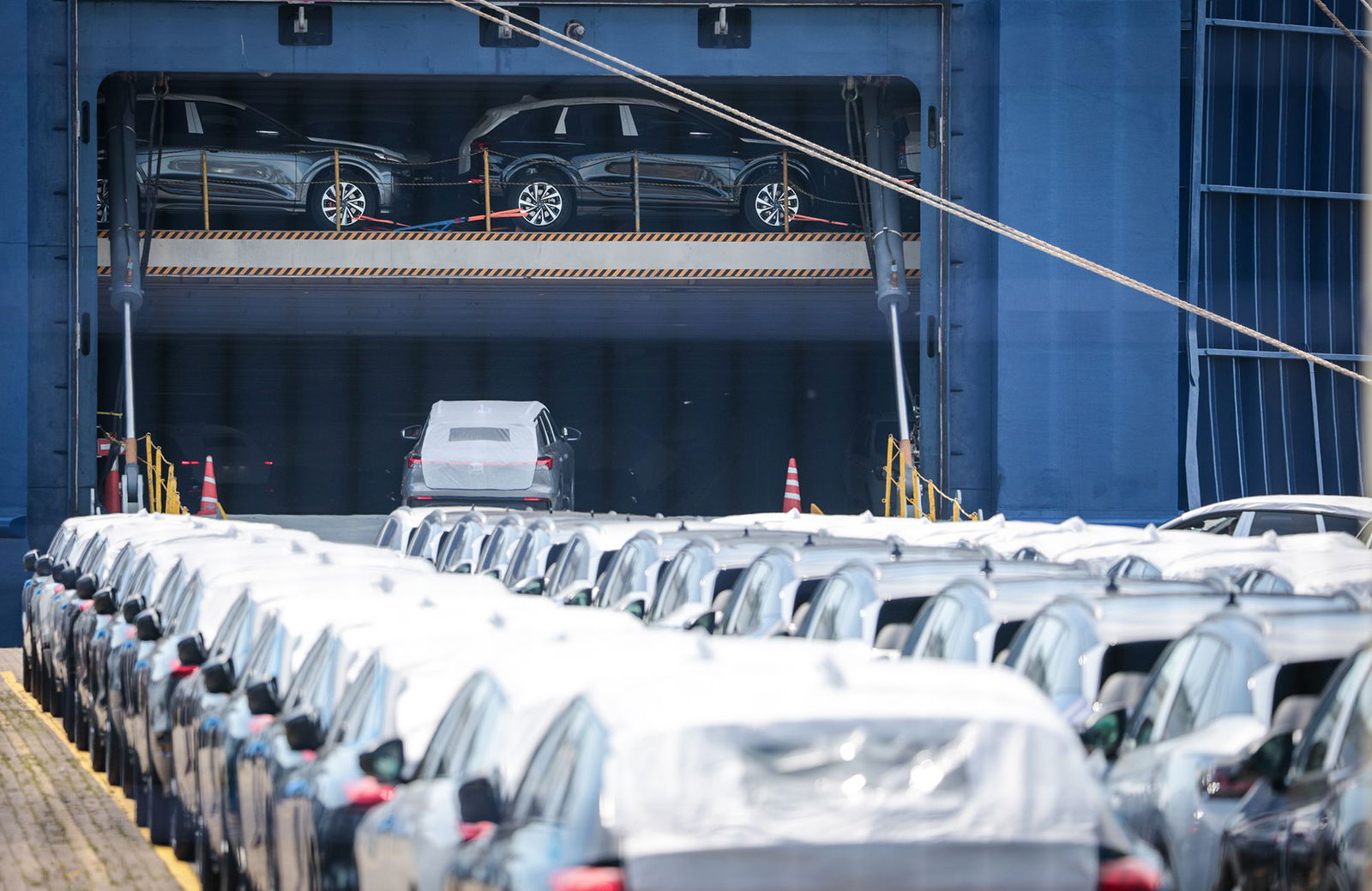Lower US tariffs on EU autos are on hold for now

Cars loaded onto a carrier ship in Germany for export. The lower tariffs on US imports from the EU won't go into effect as early as previously believed
By Chris Isidore, CNN
(CNN) — The lower US tariffs on cars imported from the EU will have to wait, at least for now.
The EU-US trade agreement is poised to cut the US import tax on cars from the EU from 27.5% to 15%. However, details released Thursday reveal that the lower rate won’t take effect until the EU takes separate action to reduce its own tariffs on US goods.
“These tariff reductions are expected to be effective from the first day of the same month in which the European Union’s legislative proposal is introduced,” said the latest specifics of the trade agreement released by both the EU and US.
This is another example of the ever-changing trade rules this year between the United States and its major trading partners which will impose additional costs on American businesses that import goods and likely eventually raise costs for consumers.
The Trump administration announced tariffs of at least 25% on imported vehicles and parts earlier this year. Since then, the US has announced trade agreements with many countries that export cars to United States, expect two of the largest: Mexico and Canada.
For example, Germany – the EU country with the most auto exports to the United States – shipped 431,000 vehicles to America last year, according to S&P Global Mobility. But that is only about 3% of the US market, placing it a distant fifth behind Mexico, South Korea, Japan and Canada.
US automakers have objected strongly to lowering tariffs on most overseas imports while maintaining higher rates on cars and parts from Canada and Mexico. That’s because previous trade deals has allowed the auto industry for decades to operate as if North America was a single market, freely moving parts and vehicles across the borders. Automakers point out that cars assembled in Mexico and Canada include a significant amount of parts produced at US plants.
Despite fears, auto tariffs have not significantly raised prices for American car buyers so far this year. Data from car buying site Edmunds shows that the average car price in July was up less than 2% from before the tariffs took effect in March, or a year ago.
That’s because automakers have, so far, been willing to assume the higher cost of building and importing vehicles instead of raising prices. The concern is that higher prices will put vehicles out of the reach for many customers, cutting into demand. Several companies, including General Motors, Ford, Stellantis and Toyota, have announced they are racking up billions in additional costs due to tariffs.
The-CNN-Wire
™ & © 2025 Cable News Network, Inc., a Warner Bros. Discovery Company. All rights reserved.



